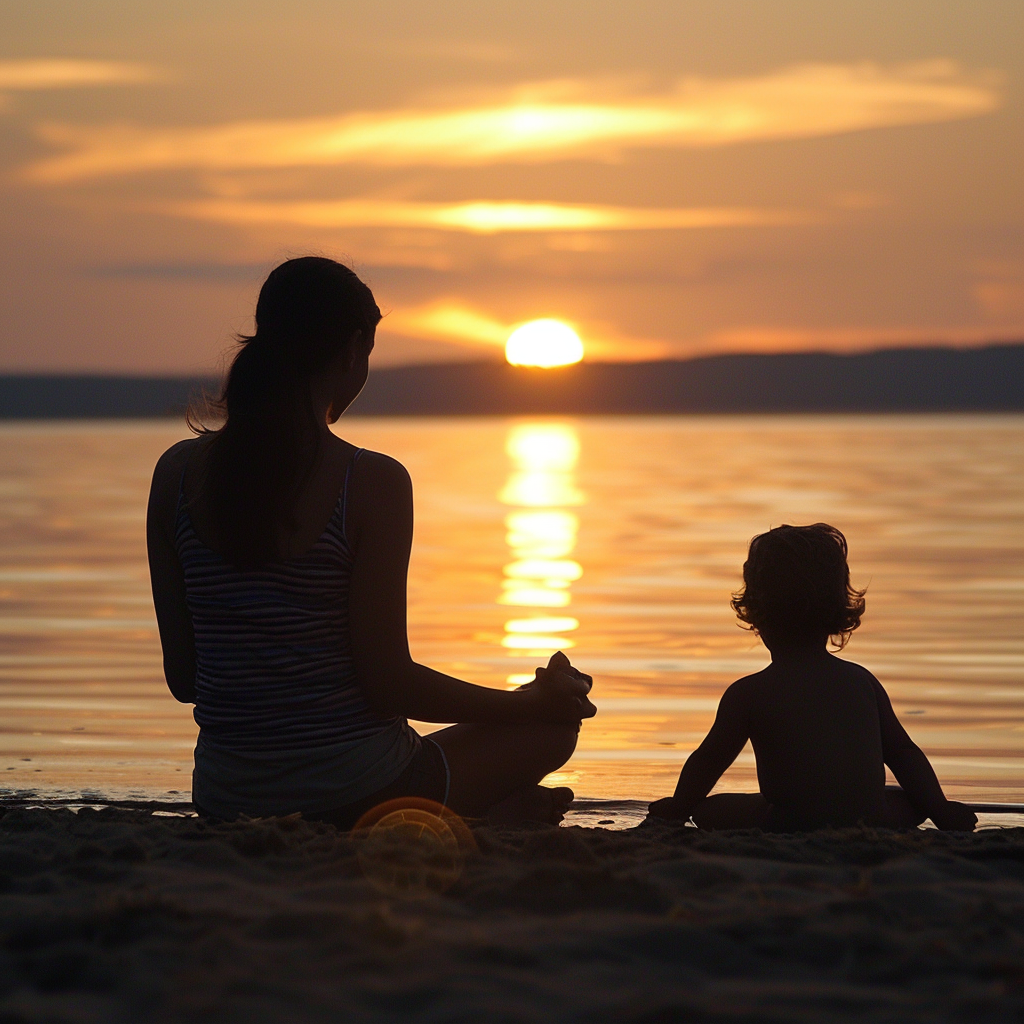Mindfulness in Parenting: How to Stay Present and Calm

Mindfulness in parenting is an essential aspect that is often overlooked but can have a tremendous impact on our relationships with our children and our own well-being. In the hustle and bustle of everyday life, staying present and calm can be challenging, but the practice of mindfulness offers valuable tools to achieve this. Mindfulness means being present in the present moment and being aware of it without judging it. This skill can help parents better manage stressful situations and build a deeper connection with their children.
An important first step to practicing mindfulness in parenting is to become aware of your own emotions and reactions. Parents often feel a lot of pressure to get everything right, which can lead to stress and frustration. By learning to recognize and accept our feelings, we can prevent negative emotions from controlling our behavior. One simple way to do this is to practice breathing meditation regularly. Sit for a few minutes each day, close your eyes, and focus on your breathing. When thoughts or feelings arise, notice them without judging them, and gently bring your attention back to your breathing. This practice helps calm the mind and develop greater emotional stability.
Another aspect of mindful parenting is mindful interaction with our children. Often we are so caught up in our own thoughts or tasks that we miss the small, meaningful moments with our children. Mindfulness encourages us to be fully present with our children when we talk or spend time with them. This means detaching ourselves from distractions like our phones or work and focusing on the here and now. This presence strengthens emotional connection and shows our children that they have our full attention in that moment.
Patience is a virtue strengthened by mindfulness and is essential to parenting. Children often test our patience, whether through tantrums, constant questioning, or simply by being children. Mindfulness teaches us to pause in such moments, take a deep breath, and respond consciously rather than acting impulsively. This conscious response helps deescalate conflict and create a calmer family environment.
Self-care is another important part of mindful parenting. Parents tend to put their own needs aside to care for their children, which often leads to exhaustion and burnout. Mindfulness reminds us that it is important to take care of ourselves too. This can be done through simple activities that bring us joy and relaxation, such as taking a walk in nature, reading a book or practicing yoga. By taking time for ourselves, we can recharge our own batteries and are therefore better able to be there for our children.
Mindfulness can also help us better understand our children’s behavior and respond appropriately. By taking the time to mindfully observe our children’s behavior, we can identify underlying needs and feelings. Instead of immediately reacting or punishing, we can ask ourselves what our child needs or what they are trying to tell us with their behavior. This mindful approach promotes empathy and understanding and helps us raise our children in a loving and supportive way.
A practical tip for integrating mindfulness into everyday family life is to introduce rituals. These can be simple routines, such as eating meals together without distractions, where each family member shares their thoughts and experiences of the day, or a shared evening meditation or story before going to bed. Such rituals create a space of connection and calm that is good for both children and parents.
In conclusion, mindfulness in parenting does not mean being perfect or always remaining calm and composed. It is about treating yourself and your children with compassion and acceptance and living consciously in the moment. Through the practice of mindfulness, parents can learn to better manage stressful situations, build a deeper connection with their children and lead a more harmonious family life. Mindfulness is a valuable resource that helps us to be present, patient and loving as parents while also paying attention to our own well-being.


0 Kommentare